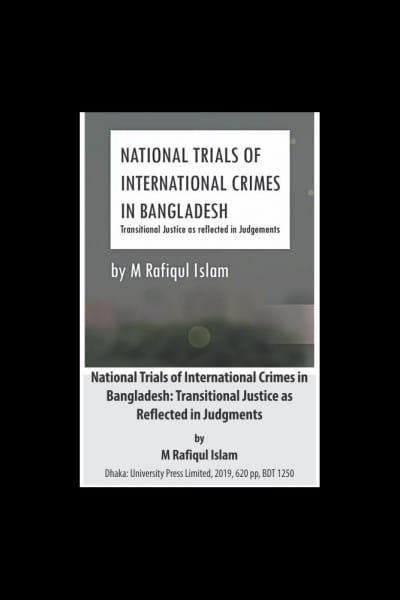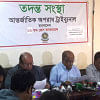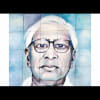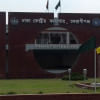Trials of international crimes in national courts

The book under review is the first of its kind which objectively “examines the quest of Bangladesh for transition from its violent past to the peaceful future through judicial trials of atrocities committed during its liberation war in 1971”. The beauty of this book lies with the fact that it offers sets of critical analyses of Bangladesh's trial process both from legislative and judicial perspectives in order to make the Bangladeshi justice model a contributory one to the progressive development of Asia and international criminal justice jurisprudence. Published in March 2019, the book titled National Trials of International Crimes in Bangladesh: Transitional Justice as Reflected in Judgments authored by Professor M Rafiqul Islam from Macquarie University of Australia, is undoubtedly a much needed scholarly contribution in the realm of international criminal law, speciallly in the context of the long struggle of Bangladesh to ensure justice for the victims of 1971's genocide and atrocity crimes.
This book is well-articulated, sufficiently analysed and eloquently divided into sixteen chapters. In chapter one, the author introduces the readers with the idea of transitional justice as understood in contemporary international law with references to the historic antecedents of international criminal justice mechanism. The ingenuity of this chapter is that the author has contextualised the idea of transitional justice with the background history of Bangladesh's liberation war of 1971.
In chapter two, the legal regime of the trial with a special focus on the International Crimes Tribunals (ICT) Act of 1973 has been described. Particularly, legislative background and salient features of the Act have been explained from a comparative criminal law perspective. In short, the author has tried to see how the 1973 Act has been acting as a conduit for internalising international criminal law in a domestic legal setup.
Chapter three comprehensively disuses the substantive law of the ICT jurisdiction, namely territorial and time-based limitations of the ICT, constitutionally protected and indemnified ICT jurisdiction, retrospective ICT jurisdiction, and nexus between the ICT jurisdiction and universal jurisdiction.
Chapters four, five and six cover discussion on crimes against humanity, genocide and war crimes respectively with reference to judicial decisions held in the ICTs until December 2018. Here, the author has made an excellent attempt of arguing how international criminal law and international humanitarian law are related to each other with the changing nature of conflicts.
Chapter seven has focused on the crimes of rape and sexual violence in armed conflicts. Here, the ideas such as wartime rape and sexual violence have been expounded both from the perspectives of international humanitarian law and international criminal law. Additionally, the position of 1973 Act and relevant ICT judgments on the issue are critically presented.
Chapter eight discusses about accessorial crimes such as complicity, aiding, abetting and incitement and/or instigation, while chapter nine deals with the liability regime (modes of criminal responsibility under the 1973 Act, direct individual criminal responsibility, civilian superior criminal responsibility, and joint criminal enterprise).
Chapter fourteen makes legal responses to the alleged inadequacies of procedures and due process in the ICT trials with reference to international criminal law jurisprudence. Chapter fifteen raises the question of complementarities between international and national criminal justice and contextualises the ICT trial, while chapter sixteen elucidates significance, legacy and contribution of transitional justice in Bangladesh.
This book as a whole, in the language of the author, “presents an account and interpretation of the major legal issues contested by the prosecution and defence before the [ICT] and their judicial exposition reflected in the judgments.” The book portrays the significance and legacy of Bangladesh's trial process for other post-conflict countries which have been fighting for long to end the culture of impunity and to ensure justice for the victims of atrocious crimes.

 For all latest news, follow The Daily Star's Google News channel.
For all latest news, follow The Daily Star's Google News channel. 








Comments